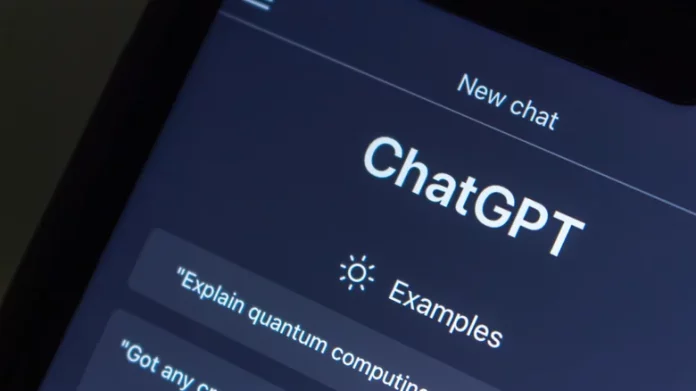ChatGPT has changed the way millions of people approach everyday tasks — from organizing their schedules to drafting emails, learning new languages, or simplifying complex ideas. It’s undeniably a revolutionary tool. Yet, like any technology, it comes with significant limitations. While it’s helpful and versatile, there are situations where relying on it can be risky or even harmful.
The internet, especially social media, is saturated with videos and posts advertising “must-try” ChatGPT hacks that promise everything from professional success to romantic fulfillment. Many even share pre-made prompts you can copy and paste to perfect your dating profile, build a workout plan, or craft a financial strategy. But just because ChatGPT can do these things doesn’t mean it should. If you want to use AI responsibly and protect yourself from unintended consequences, steer clear of these viral ChatGPT “tips” that could do more harm than good.
Don’t Date ChatGPT — Or Take Its Dating Advice
ChatGPT makes a fine travel buddy or brainstorming partner, but it’s no substitute for real human connection. Scroll through TikTok or YouTube, and you’ll see dozens of videos of people treating the chatbot like a romantic partner. While this might look fun or funny at first, it can easily slide into something unhealthy.
These AI-based “relationships” fall under the umbrella of parasocial relationships — one-sided emotional attachments that can harm mental well-being. Even playful flirting can blur boundaries and foster dependency on a digital entity that cannot reciprocate emotions or empathy.
Likewise, avoid using ChatGPT as your personal dating coach. Prompts that promise to “optimize” your dating profile or help you text more attractively might sound useful, but they ultimately distort your authenticity. Real relationships thrive on sincerity, and outsourcing your personality to an AI model can leave you hiding behind an artificial mask. Keep your love life human — that’s where true connection lies.
ChatGPT Is Not Your Lawyer
AI can certainly make legal language easier to understand, but that doesn’t make it a lawyer. Many people mistakenly assume that ChatGPT can interpret laws or provide legitimate legal advice. In reality, doing so can land you in serious trouble.
While ChatGPT can explain general concepts like “what is a contract,” it cannot interpret your unique situation or apply laws that vary across regions. It doesn’t access updated legal databases and can’t guarantee that the information it provides aligns with current legislation. Worse still, if it gives you bad advice that causes losses or legal issues, there’s no accountability — no professional ethics, no guarantees, no safety net.
When it comes to legal matters, always consult a certified lawyer. The cost of professional advice is worth avoiding the potential pitfalls of AI’s guesswork.
Don’t Use ChatGPT for Fitness Plans
Fitness influencers are increasingly using ChatGPT to create workout or meal plans. While it might seem like an efficient and budget-friendly option, it’s a potentially dangerous one. AI lacks access to your personal health profile — your injuries, fitness level, dietary needs, or medical conditions. Even if you describe them, it has no true understanding of your body’s context.
Exercise programs require human oversight — trainers adjust routines based on form, effort, and recovery, something AI simply cannot evaluate. Plus, ChatGPT’s content can draw from outdated or misleading information. If you want safe and sustainable results, turn to certified trainers or verified fitness apps — not a chatbot with no qualifications.
Keep Your Academic Work Original
ChatGPT can be a great study companion, but it should never become your ghostwriter. Using it to write essays, research papers, or assignments can backfire badly. The model doesn’t rely on peer-reviewed or verified academic sources, meaning it can produce mistakes, fabricated citations, or incorrectly interpreted theories.
Submitting AI-generated work often counts as academic misconduct. Even paraphrased versions can be flagged by increasingly sophisticated detection tools. More importantly, leaning on AI robs you of the chance to develop critical thinking, research, and writing skills — the very heart of education. It’s fine to use ChatGPT for brainstorming or outlining ideas, but the final product should always be your own.
Don’t Rely on ChatGPT for Financial Advice
Managing money, investments, and taxes is stressful — and that’s exactly why so many people turn to AI for help. Unfortunately, that’s one of the most dangerous uses of ChatGPT. The chatbot doesn’t access real-time market data or tax law updates, nor can it analyze your income, debts, or financial goals with proper context.
To make it worse, ChatGPT can sound confident even when it’s completely wrong, giving users false reassurance about high-stakes decisions. Sharing personal financial details with any online tool also raises privacy and data security issues. When it comes to your money, it’s far safer to seek the guidance of certified financial advisors, accountants, or regulated finance apps.
ChatGPT is a powerful ally when used thoughtfully — for learning, brainstorming, or organizing your daily life. But when it comes to personal, legal, financial, or emotional matters, human expertise remains irreplaceable. AI should enhance your life, not take control of it.





